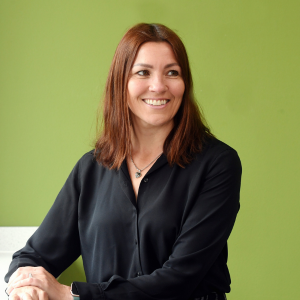Home / Expertise / Services for individuals / Head and brain injury compensation
Head and brain injury claims
We understand the impact of a brain injury on you and your family. Our specialist solicitors work with you to help you claim the brain injury compensation you need for treatment and rehabilitation to enable you to restore as much of your independence as possible.
Our brain injury claims team has experience dealing with both complex brain injury claims in adults and brain injury cases involving children, particularly where the injury to the brain was caused during birth.
Need advice?
CLICK HERE TO GET IN TOUCH WITH USIn the UK, over 1 million people live with the consequences of a brain injury. 1.4 million patients per year attend hospital following a head injury; 130,000 of these patients are admitted to hospital because the injury to the brain is severe.
Head and brain injuries are one of the most common causes of death and disability for those aged 1 – 40; according to the NICE guidelines, the number of people who suffer long term brain damage is relatively small.
Nonetheless, for those who do suffer catastrophic, irreversible damage, living with the consequences affects not just the individual but also their family and friends.
Medical teams always treat any head or brain injury seriously due to the life-changing consequences these injuries can cause.
Further information
Brain injuries tend to fall into two broad categories.
Firstly, traumatic brain injuries; are usually caused by a significant blow to the head, which can be the result of an accident in the workplace or on the road, a fall from a height or an assault. Secondly, non-traumatic brain injuries result from something internal, such as a stroke, tumour or mismanaged birth.
In some instances, these injuries are caused by someone else's negligence or made worse by negligent treatment, which is where we can help you seek compensation.
The symptoms of a brain injury vary for each individual due to factors such as the type of injury, the cause and the severity, but can include:
- Confusion and disorientation
- Memory loss
- Headaches
- Dizziness
- Blurred vision
- Changes to mood and behaviour.
Average payouts for brain and head injuries?
The compensation amount awarded for brain injuries varies from one individual to the next. There are several factors to consider, including the severity of the injury and the impact it has had on your life and will continue to have on your life moving forward. The compensation you receive is awarded for the brain injury, for the cost of further treatment, including any therapy and rehabilitation. The award will also cover your loss of earnings and any expenses to adapt your home or life to live as independently as possible.
The figures below are for guidance only.
For details of other claim amounts, please see our compensation calculation guide. For a detailed and more accurate valuation of your situation, please speak to one of our specialists.
| Head injuries and trauma | Estimated compensation value |
| Very severe brain damage | £340,000- £490,000 |
| Moderately severe brain damage | £267,000 - £344,000 |
| Moderate brain damage | £52,000 - £267,000 |
| Less severe brain damage | £18,500 - £52,000 |
| Minor brain or head injury | £2,700 - £15,500 |
| Epilepsy | Estimated compensation value |
| Grand mal | £124,000 - £183,000 |
| Petit mal | £67,000 - £160,000 |
| Epileptic related conditions | £13,000 - £32,000 |
No win, no fee brain injury claims
The majority of our claims are handled on a no win no, fee basis or a conditional fee agreement to use its technical term. This means there is no financial risk to you.
Step one in your compensation claim is to call or email and tell us about your brain or head injury, where and how it occurred and how severe the injuries are. You can call or email on behalf of yourself, a friend or a loved one.
Based on the details you supply, our brain injury specialists will tell you how likely you'd be in making a successful claim and an estimated value of the claim.
Rehabilitation
It is well documented that the initial two years after a brain injury are when most of the recovery occurs, so starting rehabilitation as quickly as possible is critical to your recovery. That's not to say that recovery cannot continue after a two year period, but early intervention is likely to yield the most favourable outcome.
Your rehabilitation will likely involve a mixture of therapies, including physical and occupational therapy. Brain cells cannot regenerate, but with the right and timely rehabilitation, other brain areas can take over some functions of the damaged brain cells.
For this reason, we will seek interim payments before a final settlement is agreed upon to ensure you have access to funding to pay for the rehabilitation you need.
An outline of the claims process
There is a set process and time limit for making a medical negligence claim, and brain injuries are no different. If your brain injury has been caused by medical negligence, an outline of the process is below. The process differs slightly for brain injuries caused by an accident.
Contact a lawyer
It seems obvious, but the first step in making a claim is to contact a specialist brain injury solicitor for advice. It is essential to use a solicitor who regularly handles brain injury cases to ensure they understand the complexity of the claim and the impact the injury has had on your life.
Funding a potential claim
If your claim has merit, the first thing to discuss with your lawyer is your options to fund your claim. The majority of claims of this nature are taken on a no-win, no-fee basis, but there are other options available, for example, legal expenses insurance or private funding.
Obtaining your medical records
Once the funding method has been agreed, the next stage is to request your medical records to see your treatment history. Our in-house experts will review your medical history in detail to establish whether you have a claim.
Expert medical opinions
It will be vital to have the opinion of a medical expert to confirm there has been a breach of duty and show the areas where the treatment you received was sub-standard. In the case of brain injuries, it is almost always necessary to seek the expert opinion of more than one medical expert to prove your claim successfully - this could be a neurologist, neuropsychologist, neuropsychiatrists and physiotherapists.
The claim value
Once we have the expert opinions from the medical specialists, we can start to assess the actual value of your claim, taking into account your 'general damages' awarded for your pain and suffering and your special damages, which relate to your out of pocket expenses.
Setting out the details of your claim
Once we have all the information and details from the medical experts, we will draft a 'letter of claim'. This is the formal approach to the defendant setting out the details of the allegations and the claim. The defendant will have four months to investigate and respond to the letter of claim in a formal 'letter of response'. Their response may admit liability or contest some or all of the allegations.
The letter of response
Depending on the defendant's response, it may be possible to move straight to settlement discussions if they admit full or partial liability. The settlement process involves both parties agreeing on a settlement value. This process often involves further medical evaluation, input and expertise to determine the lifetime needs and potential expenses that the settlement should cover.
If the defendant contests the allegations, we will consider a further letter of response, including the intention of going to court.
The majority of claims do not make it as far as trial. Instead, the court tries to outline a timetable to enable both parties to resolve matters themselves.
Time limits
As with all medical negligence cases, there are strict time limits on claiming compensation for a brain or head injury, usually three years or three years from the date of knowledge, which is the date you first became aware of the issue. Therefore, you must seek immediate legal advice from an expert as soon as you know of a problem.
The time limits for babies who suffered a brain injury as a result of a mismanaged birth are different. The child's parents or guardians have until the child's 18th birthday to claim on their behalf. If the child has the capacity to claim themselves, once they have reached their 18th birthday, they have three years to make a claim.
Our team
You must choose an expert solicitor to deal with your claim. Medical negligence, particularly head and brain injuries, can be a very complex area of law. An experienced solicitor will be able to ensure you receive the compensation rightfully yours to pay for your lifetime needs or that of your loved one.
Our team have helped hundreds of people with medical negligence cases. The team are very aware of the impact head and brain injuries and trauma can have on your everyday life and the broader impact on your family. They will deal with your claim with compassion and understanding.
While we recognise that you can never be 'compensated' for the life-changing impact of your brain injury, however, by securing brain injury compensation for you, we aim to give you the financial stability to get the care and rehabilitation you need to live as independently as possible.
The importance of expertise
We have a network of medical experts, including neurologists, neuropsychologists, neuropsychiatrists and investigators who we work with to establish your claim. They assist us in building a case for you, looking at your medical reports and your injuries and assessing the likely cost of your future rehabilitation and care. This can include physiotherapy, speech therapy, nursing, equipment and, in some instances, accommodation and transport.







